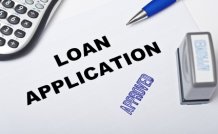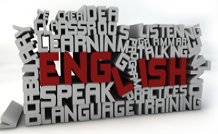Online Class: How to Write a Grant Proposal

no certificate
with CEU Certificate*
-
16Lessons
-
29Exams &
Assignments -
4,567Students
have taken this course -
9Hours
average time -
0.9CEUs
Course Description
Most people out there have asked somebody, at some time, for something in writing (one way or another), so you have most likely followed some of the basic principles and procedures of putting a good case forward for something you want (and not necessarily for money).
And basically that is what a grant proposal is all about. Okay, there's a little more to it than that--but the techniques you consciously (or unconsciously) learned when putting together those requests, when submitting them and SUCCEEDING, are a fabulous place to begin. BUT obviously you need to polish up that gem by building on the basics, learning the techniques, and following the requirements and conditions for writing successful grant proposals.
And there is no better place to start than with this course. It doesn't supply all the answers, no one source does, but this approach to the subject of grant writing is clear, straightforward, and easy to understand.
It doesn't matter whether you are looking at grant writing just as a means of helping your child's school, or looking at it as a part or full-time career. You can and will be successful if you set your mind to it and invest a little of your time in carefully going through this course, researching sites suggested in it, and building from there.
Join us today, and let's learn how to write a successful grant proposal!
Course Motivation
Matchmakers are needed to bring together both sides; i.e., the seekers and granters.
That is where you could come in! Particularly as there are not nearly that many good grant writers or matchmakers that can bring them together.
The short answer is no one! The terms "grant writing" or "grant writer" are misnomers, as no one actually writes grants at all.
People write grant proposals when they are seeking money from people or organizations. Those same people, foundations, or organizations receiving the proposals in turn write the agreements and checks to cover the amount the grant is for. That is when the actual writing comes in.
The grant writer label is widely recognized to describe the actual process of proposal writing, as well as depict the way people visualize the job. So, rather than split hairs, let us agree to accept the label of grant writer as such.
Grant proposals are requests submitted to individuals, foundations, or the government for funding. They include a narrative, forms, and usually attachments to support the request. It is a responsibility of the grant writer to develop and compile all the necessary documentation for submission and to do so creatively.
Grants are gifts made by those individuals, foundations, or governments, and most often they are made to nonprofit organizations; i.e., those organizations designated 501(c)(3) by the Internal Revenue Service.
The Language You Need to Know
It is crucial that you can speak and understand the language of "Grant-ese." It is not as difficult as learning to speak Chinese, German, or French; but you need to appreciate how important it is that you are proficient in the language of grants if you are to be successful in this field.
Using either incorrect or confusing lingo, especially for high-level support requests, not only leads to frustration, confusion, and delays in getting a decision but usually, more often than not, to rejection. That is something you definitely do not want to encourage!
Rather than go into a long list of words and their meanings here, we will provide a glossary as an addendum to these lessons, as well as a list of some great referral material. It is important to stress, however, the necessity of not only speaking the language but doing so in such a manner that you inspire confidence in both clients and grant makers.
The term "grant seekers" denotes not only those individuals or organizations seeking funds but also those organizations, corporations, and individuals looking for funds to give, sometimes to lift their profile in the community, sometimes for a tax benefit, or for a number of other reasons.
We have covered some of those organizations that would make up your market, but keep in mind that the primary market of a grant writer is the nonprofit sector. Just some of the diverse categories are as follows:
|
|
There are several crucial skills you absolutely need to be a successful grant writer. You not only need to do them efficiently but consistently and without fail.
Next, never miss a deadline. Keep in mind that sometimes, even if a grant proposal arrives as little as an hour or two late, it may miss being reviewed. Yes, it can be tough!
Third, and although it may seem obvious, read and follow the instructions.
You will soon realize that there are just two ways to approach the seeking of grant funding: (1) you search for matches between organization/foundation guidelines and your client organization's mission, and (2) you respond to a RFP (request for proposal).
It does not matter whether you are writing with regard to an actual RFP or to guidelines, the grant proposal instructions must be followed carefully and precisely.
TIP: You must use the language and approach set out by your addressees.
Be aware that changes to the intent of funding have been taking place. Whereas at one time funding was available mainly for capital projects, such as construction, renovation, etc., and original staffing costs and items necessary for special project implementation, grants rarely covered operational costs, such as utilities and ongoing staffing expenses.
Operating grants are now becoming increasingly common as organizations are wishing to ensure the continuance of successful programs, particularly those that have been deemed necessary to an organization and the community.
Many view the United States as the most philanthropic nation in the world, and that is probably correct. Americans have every reason to be proud of their long-standing tradition of caring for those less fortunate and of sharing their blessings with others.
These traditions date back to Native Americans and early religious leaders in particular, who both shared their bounty of harvests and knowledge with others through the centuries.
In 1913, the federal government established the income tax program through which it collected money for redistribution throughout the United States, wherever it was most needed and useful. Today the government plays a very active role in determining the types of projects that need and receive public support.
- Completely Online
- Self-Paced
- Printable Lessons
- Full HD Video

- 6 Months to Complete
- 24/7 Availability
- Start Anytime
- PC & Mac Compatible
- Android & iOS Friendly
- Accredited CEUs

Course Lessons
Lesson 1: Know Your Grant Basics
 Lesson 1 Video
Lesson 1 Video Lesson discussions: Grant Writing Experience; Reasons for Taking this Course
Lesson discussions: Grant Writing Experience; Reasons for Taking this Course Complete: Lesson 1 Assignment: Why Grant Writing?
Complete: Lesson 1 Assignment: Why Grant Writing? Assessment: Lesson 1 Exam
Assessment: Lesson 1 Exam
Lesson 2: Projects and Proposals that Will Be Successful and Why
 Lesson 2 Video
Lesson 2 Video Complete: Lesson 2 Assignment: Defining Success
Complete: Lesson 2 Assignment: Defining Success Assessment: Lesson 2 Exam
Assessment: Lesson 2 Exam
Lesson 3: Grant Writing Could Be the Answer
 Lesson 3 Video
Lesson 3 Video Lesson discussions: Grant Writing Success
Lesson discussions: Grant Writing Success Complete: Lesson 3 Assignment: What Makes a Good Grant Writer?
Complete: Lesson 3 Assignment: What Makes a Good Grant Writer? Assessment: Lesson 3 Exam
Assessment: Lesson 3 Exam
Lesson 4: Where Is the Money?
 Lesson 4 Video
Lesson 4 Video Complete: Lesson 4 Assignment: Funding Your Organization
Complete: Lesson 4 Assignment: Funding Your Organization Assessment: Lesson 4 Exam
Assessment: Lesson 4 Exam
Lesson 5: Trends and Facts
 Lesson 5 Video
Lesson 5 Video Complete: Lesson 5 Assignment: Identifying Trends
Complete: Lesson 5 Assignment: Identifying Trends Assessment: Lesson 5 Exam
Assessment: Lesson 5 Exam
Lesson 6: Key and Working Components of Great Grant Proposals
 Lesson 6 Video
Lesson 6 Video Complete: Lesson 6 Assignment: The Mission Statement
Complete: Lesson 6 Assignment: The Mission Statement Assessment: Lesson 6 Exam
Assessment: Lesson 6 Exam
Lesson 7: Action Plans and Their Timelines
 Lesson 7 Video
Lesson 7 Video Complete: Lesson 7 Assignment: Writing an Action Plan
Complete: Lesson 7 Assignment: Writing an Action Plan Assessment: Lesson 7 Exam
Assessment: Lesson 7 Exam
Lesson 8: Designing, Establishing, and Utilizing an Appropriate Evaluation Plan
 Lesson 8 Video
Lesson 8 Video Complete: Lesson 8 Assignment: Program Evaluation
Complete: Lesson 8 Assignment: Program Evaluation Assessment: Lesson 8 Exam
Assessment: Lesson 8 Exam
Lesson 9: Preparing to Write
 Lesson 9 Video
Lesson 9 Video Assessment: Lesson 9 Exam
Assessment: Lesson 9 Exam
Lesson 10: Words for the Wise
 Lesson 10 Video
Lesson 10 Video Assessment: Lesson 10 Exam
Assessment: Lesson 10 Exam
Lesson 11: Reviewing Your Work in a Way That Underscores the Strengths and Reduces the Weaknesses
 Lesson 11 Video
Lesson 11 Video Complete: Lesson 11 Assignment: Develop a Timeline
Complete: Lesson 11 Assignment: Develop a Timeline Assessment: Lesson 11 Exam
Assessment: Lesson 11 Exam
Lesson 12: Budgets
 Lesson 12 Video
Lesson 12 Video Complete: Lesson 12 Assignment: Creating a Budget
Complete: Lesson 12 Assignment: Creating a Budget Assessment: Lesson 12 Exam
Assessment: Lesson 12 Exam
Lesson 13: Your Packaging Is Crucial; 'Gift-Wrap' Your Proposal Accordingly
 Lesson 13 Video
Lesson 13 Video Assessment: Lesson 13 Exam
Assessment: Lesson 13 Exam
Lesson 14: Negotiating Grants.gov
 Lesson 14 Video
Lesson 14 Video Assessment: Lesson 14 Exam
Assessment: Lesson 14 Exam
Lesson 15: Miscellaneous Proposal Applications
 Lesson 15 Video
Lesson 15 Video Complete: Lesson 15 Assignment: Format Preference
Complete: Lesson 15 Assignment: Format Preference Assessment: Lesson 15 Exam
Assessment: Lesson 15 Exam
Lesson 16: The Triumphs of Successful Reporting
 Lesson 16 Video
Lesson 16 Video Lesson discussions: Do You Feel Prepared?; Program Evaluation Follow-up Survey (End of Course); Course Comments
Lesson discussions: Do You Feel Prepared?; Program Evaluation Follow-up Survey (End of Course); Course Comments Complete: The Final Assignment
Complete: The Final Assignment Assessment: Lesson 16 Exam
Assessment: Lesson 16 Exam Assessment: The Final Exam
Assessment: The Final Exam
Learning Outcomes
- Define grant proposal and describe the basic purpose of writing one.
- Summarize which projects and proposals will be funded and why.
- Summarize the best places to find money for grant projects.
- Summarize the key working components of a grant proposal.
- Describe what action plans are, why they are important, and how to establish their timelines.
- Design, establish and utilize an appropriate evaluation plan.
- Demonstrate how to write an appropriate budget for a grant proposal.
- Create a cover letter and complete the application.
- Summarize the types of reporting required when landing a grant.
- Demonstrate mastery of lesson content at levels of 70% or higher.
Additional Course Information

- Document Your Lifelong Learning Achievements
- Earn an Official Certificate Documenting Course Hours and CEUs
- Verify Your Certificate with a Unique Serial Number Online
- View and Share Your Certificate Online or Download/Print as PDF
- Display Your Certificate on Your Resume and Promote Your Achievements Using Social Media

Choose Your Subscription Plan
No Certificate / No CEUs
This course only
| Includes certificate | X |
| Includes CEUs | X |
| Self-paced |

|
| Instructor support |

|
| Time to complete | 6 months |
| No. of courses | 1 course |
Certificate & CEUs
This course only
| Includes certificate |

|
| Includes CEUs |

|
| Self-paced |

|
| Instructor support |

|
| Time to complete | 6 months |
| No. of courses | 1 course |
Certificates & CEUs
Includes all 600+ courses
| Includes certificate |

|
| Includes CEUs |

|
| Self-paced |

|
| Instructor support |

|
| Time to complete | 12 Months |
| No. of courses | 600+ |
Certificates & CEUs
Includes all 600+ courses
| Includes certificate |

|
| Includes CEUs |

|
| Self-paced |

|
| Instructor support |

|
| Time to complete | 24 Months |
| No. of courses | 600+ |
Student Testimonials
- "The course was very helpful and somewhat difficult for me. I learned grant writing is not as simple as I thought it was, you have to be very detailed and collect a lot of data and do a lot of research. But the funny thing is I am still interested in doing grant writing. I am now well-prepared to start grant writing and I feel it is a necessity in our society today. Thank you." -- Lynda W.
- "I found this class to be the most challenging in Universal Class from the nine courses I have taken. Challenging in a good way and you have to demonstrate resilience to complete the course. ." -- Kelly D.
- "Great course! I don't think there is much I would change!" -- Jorge A.
- "Thank you very much for your time, and I learned a lot about the grant writing process." -- Christine B.
- "Great course and instructor. Look forward to taking more courses." -- Ellen K.
- "The instructor was awesome." -- James B.
- "All went very well. Thank you!" -- Veaceslav P.
- "The material and the links were great and very informative. The assignments were well designed and really helped me to learn as I worked on them." -- Nicole G.
- "I found it all very useful. I have not written a grant before, and I knew it was time consuming, but this course taught me I will really have to manage my time greatly. I think that one of the parts I liked was the resources that I did not have previously, I had now. " -- Peg J.
- "I enjoyed the course and had a wonderful instructor." -- Faith R.
Related Courses
-
 45 hours
4.5 CEUs
Event Management Course Bundle
$145.00
45 hours
4.5 CEUs
Event Management Course Bundle
$145.00
-
 17 hours
1.7 CEUs
ESL Basic Grammar and Writing
$95.00
17 hours
1.7 CEUs
ESL Basic Grammar and Writing
$95.00
-
 52 hours
5.2 CEUs
ESL Grammar Skills: Level 1-5 Course Bundle
$175.00
52 hours
5.2 CEUs
ESL Grammar Skills: Level 1-5 Course Bundle
$175.00
-
 29 hours
2.9 CEUs
Human Resources Productivity Course Bundle
$120.00
29 hours
2.9 CEUs
Human Resources Productivity Course Bundle
$120.00
-
 87 hours
8.7 CEUs
Writing Help Course Bundle
$135.00
87 hours
8.7 CEUs
Writing Help Course Bundle
$135.00
-
 12 hours
1.2 CEUs
Writing Effective Persuasion
$95.00
12 hours
1.2 CEUs
Writing Effective Persuasion
$95.00
-
 7 hours
0.7 CEUs
Interpersonal Communication
$95.00
7 hours
0.7 CEUs
Interpersonal Communication
$95.00
-
 3 hours
0.3 CEUs
Business Credit 101
$95.00
3 hours
0.3 CEUs
Business Credit 101
$95.00
-
 23 hours
2.3 CEUs
Historical Fiction Writing
$95.00
23 hours
2.3 CEUs
Historical Fiction Writing
$95.00
-
 4 hours
0.4 CEUs
Slack
$95.00
4 hours
0.4 CEUs
Slack
$95.00
-
 5 hours
0.5 CEUs
Goal Setting 101
$95.00
5 hours
0.5 CEUs
Goal Setting 101
$95.00
-
 8 hours
0.8 CEUs
Decision Making Skills
$95.00
8 hours
0.8 CEUs
Decision Making Skills
$95.00
-
 5 hours
0.5 CEUs
Habits of Millionaires
$95.00
5 hours
0.5 CEUs
Habits of Millionaires
$95.00
-
 5 hours
0.5 CEUs
Workers' Compensation 101
$95.00
5 hours
0.5 CEUs
Workers' Compensation 101
$95.00
-
 8 hours
0.8 CEUs
Legal Terminology 101
$95.00
8 hours
0.8 CEUs
Legal Terminology 101
$95.00
-
 12 hours
1.2 CEUs
ESL Grammar Skills Level 1
$95.00
12 hours
1.2 CEUs
ESL Grammar Skills Level 1
$95.00
-
 7 hours
0.7 CEUs
Etiquette 101
$95.00
7 hours
0.7 CEUs
Etiquette 101
$95.00
-
 6 hours
0.6 CEUs
How to Start and Run an Online Business
$95.00
6 hours
0.6 CEUs
How to Start and Run an Online Business
$95.00
-
 5 hours
0.5 CEUs
Mastering Conversation Skills
$95.00
5 hours
0.5 CEUs
Mastering Conversation Skills
$95.00
-
 9 hours
0.9 CEUs
ABCs of Technical Writing
$95.00
9 hours
0.9 CEUs
ABCs of Technical Writing
$95.00
-
 7 hours
0.7 CEUs
How to Deal with Difficult Personalities
$95.00
7 hours
0.7 CEUs
How to Deal with Difficult Personalities
$95.00
-
 9 hours
0.9 CEUs
Customer Relationship Management
$95.00
9 hours
0.9 CEUs
Customer Relationship Management
$95.00
-
 8 hours
0.8 CEUs
Motivational and Public Speaking 101
$95.00
8 hours
0.8 CEUs
Motivational and Public Speaking 101
$95.00
-
 8 hours
0.8 CEUs
Teaching Grammar to ESL Students
$95.00
8 hours
0.8 CEUs
Teaching Grammar to ESL Students
$95.00
-
 8 hours
0.8 CEUs
Community Development 101
$95.00
8 hours
0.8 CEUs
Community Development 101
$95.00
-
 5 hours
0.5 CEUs
Operations Management 101
$95.00
5 hours
0.5 CEUs
Operations Management 101
$95.00
-
 5 hours
0.5 CEUs
Internet Marketing Basics
$95.00
5 hours
0.5 CEUs
Internet Marketing Basics
$95.00
-
 7 hours
0.7 CEUs
How to Win Arguments
$95.00
7 hours
0.7 CEUs
How to Win Arguments
$95.00
-
 6 hours
0.6 CEUs
How to Run an Effective Help Desk
$95.00
6 hours
0.6 CEUs
How to Run an Effective Help Desk
$95.00
-
 7 hours
0.7 CEUs
Management Consultant 101
$95.00
7 hours
0.7 CEUs
Management Consultant 101
$95.00
-
 17 hours
1.7 CEUs
Poetry Writing 101
$95.00
17 hours
1.7 CEUs
Poetry Writing 101
$95.00
-
 6 hours
0.6 CEUs
Freelance Writing 101
$95.00
6 hours
0.6 CEUs
Freelance Writing 101
$95.00
-
 14 hours
1.4 CEUs
Creative Writing Workshop
$95.00
14 hours
1.4 CEUs
Creative Writing Workshop
$95.00
-
 7 hours
0.7 CEUs
Sensitivity Training for the Workplace
$95.00
7 hours
0.7 CEUs
Sensitivity Training for the Workplace
$95.00
-
 11 hours
1.1 CEUs
How to Write Effective Policies and Procedures
$95.00
11 hours
1.1 CEUs
How to Write Effective Policies and Procedures
$95.00
-
 7 hours
0.7 CEUs
Organizational Behavior in Business
$95.00
7 hours
0.7 CEUs
Organizational Behavior in Business
$95.00
-
 6 hours
0.6 CEUs
Leadership and Supervision 101
$95.00
6 hours
0.6 CEUs
Leadership and Supervision 101
$95.00









